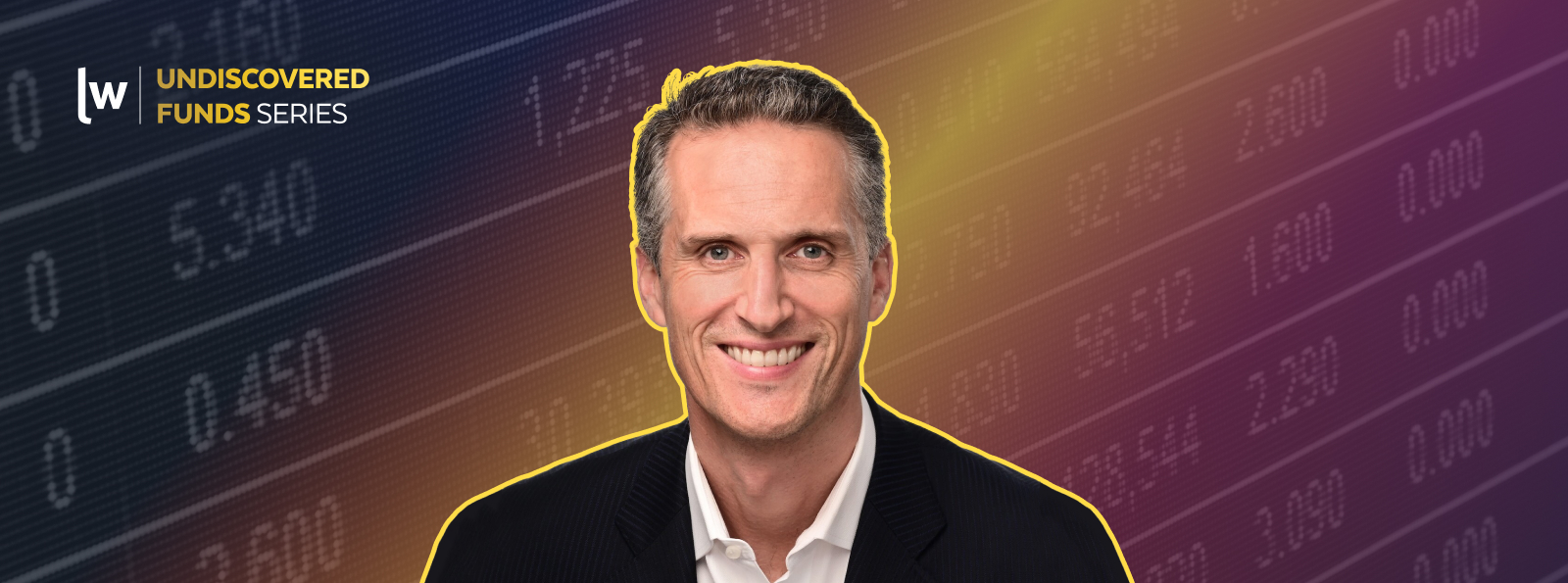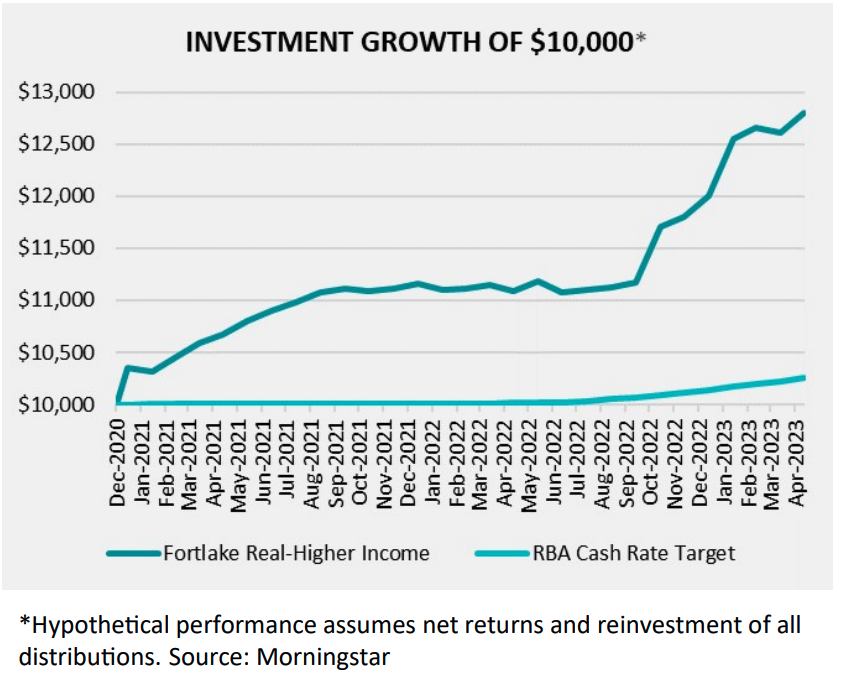High single-digit returns are no joke for this bond investor
You’d probably laugh if you were told you could earn 9.5% from a portfolio that contains not a single high-growth stock – in fact, no equities at all. But that’s the two-year annualised performance of Fortlake’s Real-Higher Income Fund.
It’s a fixed-income strategy that opened to investors in December 2020 – when Australia was gripped by COVID and a full three months before the first vaccines hit our shores. And the global bond market fell to historic lows in the following couple of years.

But in saying that, the Fortlake fund isn’t benchmarked like that. Instead, it targets a return of between 4% and 5% above the prevailing Reserve Bank cash rate. And on that metric, Fortlake Asset Management’s CIO Dr Christian Baylis and his team have knocked it out of the park, returning 6.86% in calendar 2023 so far.
How is this possible?
The fund’s Absolute Return approach is one of several points of difference. And as Baylis explains, it’s intrinsic to how the strategy was constructed.
“In an income-based asset class, you've really got to bring the focus to what you're achieving after inflation. That became one of the overarching themes…to eke out a decent above-inflation return for investors,” says Baylis.
And on that front, Baylis says: “We’re a Puritan in relation to our investment ideology.”

The fund also uses a combination of smart, flexible portfolio construction that’s not restricted to any single type of fixed-income asset. Investments in the fund can include floating-rate notes, fixed-rate bonds, money market securities, inflation-linked securities, and generally anything that sits above equity on the capital structure.
“And if we have to go to the ends of the earth to eke out the right opportunity, we will do that.”
While Baylis acknowledges the fund’s relatively short tenure, it already has two research ratings (which is somewhat rare for such fresh funds).
Only the strongest survive
He also points out that the rollercoaster ride of global markets since the inflation breakout last year has one benefit: it’s shown (to paraphrase Warren Buffet) which fund managers are swimming naked.
“We’ve had a full economic cycle in the space of 24 months. You’ve seen every twist and turn you can think of, going from near-zero inflation to upwards of double-digits across some of he developed economies,” Baylis says.
“For an asset class like ours, which is income-sensitive, that makes it particularly challenging. But it has been good…it creates disparity among managers.”
The appeal of sovereign debt
Referencing this market volatility several times, in the video below you’ll hear what Baylis thinks lies ahead for credit markets and some of the most interesting countries – some well off the beaten track – the fund is invested in.
And does he expect a hard landing for the US? Baylis answers that too, alongside what a neutral interest rate looks like to him and how it’s possible to prosper – not just ride out – from defaults.
This is something Baylis emphasises during our chat – that investors should seek to not only minimise such negative effects but turn them into positives.
“We see really good opportunities in passing the benefits of defaults through to investors. And that actually means you can prosper from defaults. It doesn't mean you have to just avoid it. And that's your way of effectively capturing alpha,” Baylis says.
“Central banks have stepped out of the party. They're letting markets make up their own mind about these prices and these yields. And not only that, but they’re also selling into these markets by not renewing issuance.”
He refers to a paradigm shift in the market, where free markets are now determining the prices and yields of government bonds.
“In government bond markets, what you actually find is that ex-ante risk is being well-priced and we're actually starting to get compensated for holding government bonds,” Baylis says.
“Central banks have stepped out of the party. They're letting markets make up their own mind about these prices and these yields. And not only that, but they’re also selling into these markets by not renewing issuance.”
That’s why his team is going to be more heavily invested in government bonds, particularly those issued in lower-default-risk markets, in the next few years.
For further insights, you can watch a video interview with Fortlake's Dr Christian Baylis by clicking on the link.
3 topics

